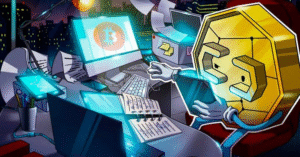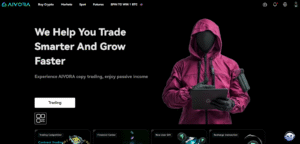Aqua, an Ethereum Gaming NFT Marketplace, Closes Due to Sluggish Industry Expansion

**Aqua, a Gaming NFT Marketplace, Shuts Down**
**Aqua’s Closure**
The gaming NFT marketplace Aqua is shutting down, as announced by CEO Sean Ryan on Friday through Linkedin. The decision to close was first mentioned last month and it has now become official.
“At Aqua, we did some things well and some things not as well, but the Web3 gaming market isn’t scaling to a mass market size in a time frame that made sense,” Ryan wrote. “Therefore, it was time to call it a day and move on to other opportunities, especially for our awesome employees.”
“I’m still a firm believer in the idea that gamers will own their gaming assets, but it’s going to take a bit longer [than] we had all hoped,” the CEO added.
**Startup Struggles and Closure**
Aqua, which was launched in 2022, partnered with blockchain firms like Immutable and Polygon Labs. However, after less than two years, the “player-focused” NFT gaming startup has closed its doors. In a graphic attached to the announcement, Ryan also shared that the startup struggled to raise funds in a broader crypto gaming market with “slower-than-expected growth.”
**Impact on Players**
The closure announcement included information for players with an AQUA Wallet on how to transfer their funds into a different wallet, or reach out for assistance.
**Market Challenges and Competitors**
Earlier this year, Ryan stated that Aqua was designed for true gamers, not “degen” crypto traders looking to make money by flipping gaming NFTs for profit. The marketplace supported NFTs on Ethereum, as well as scaling networks Polygon and Immutable X. However, the broader gaming NFT market has seen increased competition from platforms like G2A, OpenSea, and Magic Eden.
Such competition has led to the closure of other gaming NFT platforms this year. In August, GameStop announced it was killing its NFT wallet, citing “regulatory uncertainty.”
**Final Thoughts**
Aqua’s closure highlights the challenges faced by startups in the gaming NFT marketplace space. Despite initially strong support and partnerships, the company struggled to find success in a market that is becoming increasingly crowded. The closure is a reminder of the volatile and evolving nature of the NFT space, and the difficulties faced by companies looking to break into the market.

I have over 10 years of experience in the cryptocurrency industry and I have been on the list of the top authors on LinkedIn for the past 5 years. I have a wealth of knowledge to share with my readers, and my goal is to help them navigate the ever-changing world of cryptocurrencies.








